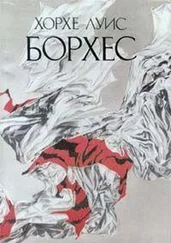Хорхе Борхес - Collected Fictions
Здесь есть возможность читать онлайн «Хорхе Борхес - Collected Fictions» весь текст электронной книги совершенно бесплатно (целиком полную версию без сокращений). В некоторых случаях можно слушать аудио, скачать через торрент в формате fb2 и присутствует краткое содержание. Год выпуска: 1999, ISBN: 1999, Издательство: Penguin (UK), Жанр: Старинная литература, на английском языке. Описание произведения, (предисловие) а так же отзывы посетителей доступны на портале библиотеки ЛибКат.
- Название:Collected Fictions
- Автор:
- Издательство:Penguin (UK)
- Жанр:
- Год:1999
- ISBN:9780140286809
- Рейтинг книги:5 / 5. Голосов: 1
-
Избранное:Добавить в избранное
- Отзывы:
-
Ваша оценка:
- 100
- 1
- 2
- 3
- 4
- 5
Collected Fictions: краткое содержание, описание и аннотация
Предлагаем к чтению аннотацию, описание, краткое содержание или предисловие (зависит от того, что написал сам автор книги «Collected Fictions»). Если вы не нашли необходимую информацию о книге — напишите в комментариях, мы постараемся отыскать её.
Collected Fictions — читать онлайн бесплатно полную книгу (весь текст) целиком
Ниже представлен текст книги, разбитый по страницам. Система сохранения места последней прочитанной страницы, позволяет с удобством читать онлайн бесплатно книгу «Collected Fictions», без необходимости каждый раз заново искать на чём Вы остановились. Поставьте закладку, и сможете в любой момент перейти на страницу, на которой закончили чтение.
Интервал:
Закладка:
Who was going to believe that?
The man at our feet was dying. My thought was, whoever had fixed his clock, his hand had been pretty steady. But the Yardmaster was tough, you had to give him that. When he came to the door just now, Julia had been brewing up some mate, and the mate went around the room and came all the way back to me before he was finally dead. "Cover my face," he said, when he knew he couldn't last anymore. His pride was all he had left, and he wa'n't going to let people gawk at the expressions on his face while he lay there dyin'. Somebody put that high-crowned black hat over his face, and he died under it, without a sound. When his chest stopped rising and falling, somebody got up the nerve to uncover him—he had that tired look that dead men get. He was one of the toughest men there was back then, from Bateríato the Southside—but no sooner was he dead and his mouth shut for all time, I lost all my hate for him.
"All it takes to die is to be alive," one of the girls back in the crowd said, and then another one said something else, in a pensive sort of way:
"Man thought so highly of himself, and all he's good for now is to draw flies."
At that, the Northsiders all muttered something to each other, real low, and then two of 'em at the same time said it out loud:
"The woman killed 'im."
One of 'em yelled in her face, asking her if it was her that did it, and they all surrounded her. At that I forgot all about being meek and not getting in anybody's way, and I pushed through to her like a shot. I'm such a damn fool, it's a wonder as mad as I was I didn't pull out the little dagger I always carried on me. I could feel almost everybody—not to say everybody—looking at me.
"Look at this woman's hands," I said with a sneer. "Do they look steady enough—does she look like she'd have heart enough—to put a Yardmaster like that?"
Then I added, cool but tough at the same time:
"Who'd've thought the dear departed, who they say was a man to be reckoned with on his own turf, would've ended up this way, and in a back-water as dead as this is, where nothin' ever happens unless some strangers wander in to give us somethin' to talk about and stay around to get spit on afterward?"
Nobody rose to that bait, either.
Just then through the silence came the sound of riders. It was the police. For one reason or another, everybody there had reason to keep the law out of this, so they decided that the best thing was to move the body down to the creek. You'll recall that long window that the gleam of the knife sailed through? Well, that's the very same way the man in black went. A bunch of them lifted him up and after they'd separated him from all the money and whatnot he had on him, somebody hacked off his finger to get to the ring he wore. Vultures, señor, to pick over a poor defenseless dead man like that, after another, better man has fixed'im. Then a heave-ho, and that rushing, long-suffering water carried him away. I couldn't say whether they gutted him*—I didn't want to look. The gray-mustached individual never took his eyes off me. La Lujanera took advantage of all the shuffling-about to disappear.
By the time the law came in to have their look around, the dance had a pretty good head of steam up again. The blind man on the violin knew how to play habaneras the likes of which you won't hear anymore. Outside, the day began to want to dawn a little. There was a line of arborvitae posts along the top of a hill, standing there all alone-like, because you couldn't see the thin strands of wire between 'em that early in the morning.
I strolled nice and easy on home to my place, which was about three blocks away. There was a light burning in the window, but then it went out. When I saw that, I can tell you I moved a good bit faster. And then, Borges, for the second time I pulled out that short, sharp-edged knife I always carried here, under my vest, under my left arm, and I gave it another long slow inspection—and it was just like new, all innocent, and there was not the slightest trace of blood on it.
Et cetera
For Néstor Ibarra
A THEOLOGIAN IN DEATH
I have been told by angels that when Melancthon died, a house was prepared for him like that in which he had lived in the world. This also is done with most of the new-comers, owing to which they do not know that they are not still in the natural world.... The things in his room, also, were all like those he had before, a similar table, a similar desk with compartments, and also a similar library; so that as soon as he awakened from sleep, he seated himself at the table and continued his writing, as if he were not a dead body, and this on the subject of justification by faith alone, and so on for several days, and writing nothing whatever concerning charity. As the angels perceived this, he was asked through messengers why he did not write about charity also. He replied that there was nothing of the church in charity, for if that were to be received as in any way an essential attribute of the church, man would also ascribe to himself the merit of justification and consequently of salvation, and so also he would rob faith of its spiritual essence. He said these things arrogantly, but he did not know that he was dead and that the place to which he had been sent was not heaven. When the angels perceived this, they withdrew....
A few weeks after this, the things which he used in his room began to be obscured, and at length to disappear, until at last there was nothing left there but the chair, the table, the paper and the inkstand; and, moreover, the walls of his room seemed to be plastered with lime, and the floor to be covered with a yellow, brick-like material, and he himself seemed to be more coarsely clad. Still, he went on writing, and since he persisted in his denial of charity... he suddenly seemed to himself to be under ground in a sort of work-house, where there were other theologians like him. And when he wished to go out he was detained.... At this, he began to question his ideas, and he was taken out, and sent back to his former chamber.... When sent back, he appeared clad in a hairy skin, but he tried to imagine that what had gone before had been a mere hallucination, and he went on praising faith and denying charity. One evening at dusk, he felt a chill. That led him to walk through the house, and he realized that the other rooms were no longer those of the dwelling in which he had lived on earth. One room was filled with unknown instruments, another had shrunk so much that he could not enter it; another one had not itself changed, but its windows and doors opened onto great sand dunes. There was a room at the rear of the house in which there were three tables, at which sat men like himself, who also cast charity into exile, and he said that he conversed with them, and was confirmed by them day by day, and told that no other theologian was as wise as he. He was smitten by that adoration, but since some of the persons had no face, and others were like dead men, he soon came to abominate and mistrust them. Then he began to write something about charity; but what he wrote on the paper one day, he did not see the next; for this happens to every one there when he commits any thing to paper from the external man only, and not at the same time from the internal, thus from compulsion and not from freedom; it is obliterated of itself....
When any novitiates from the world entered his room to speak with him and to see him, he was ashamed that they should find him in such a sordid place, and so he would summon one of the magical spirits, who by phantasy could produce various becoming shapes, and who then adorned his room with ornaments and with flowered tapestry.... But as soon as the visitors were gone, these shapes vanished, and the former lime-plastering and emptiness returned, and sometimes before.
Читать дальшеИнтервал:
Закладка:
Похожие книги на «Collected Fictions»
Представляем Вашему вниманию похожие книги на «Collected Fictions» списком для выбора. Мы отобрали схожую по названию и смыслу литературу в надежде предоставить читателям больше вариантов отыскать новые, интересные, ещё непрочитанные произведения.
Обсуждение, отзывы о книге «Collected Fictions» и просто собственные мнения читателей. Оставьте ваши комментарии, напишите, что Вы думаете о произведении, его смысле или главных героях. Укажите что конкретно понравилось, а что нет, и почему Вы так считаете.












